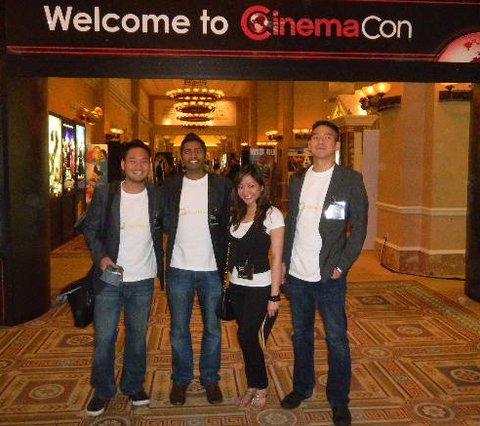 Courtesy of the Austin Chamber of Commerce Larry g(EE) at SXSW: Does music attract start-ups?
Courtesy of the Austin Chamber of Commerce Larry g(EE) at SXSW: Does music attract start-ups?
Start
The adventure of new ventures.
Several weeks ago we introduced a series that will run in this space, looking at start-up communities nationwide. In our first profile, we take a look at the scene in Austin, Tex., which established itself as a tech hub decades ago.
The city’s high-tech area adopted the name “Silicon Hills” in the 1990s. Since then the start-up infrastructure has expanded to bring along new companies and sustain old ones. Today, Austin is one of the top areas for venture capital investment in the country, garnering $621 million in 2012, according to the Austin Chamber of Commerce. Software and semiconductor firms received about 43 percent of that.
The region’s start-up ecosystem includes several venture capital firms, the Central Texas Angel Network, one of the most active angel networks in the country, groups that foster and encourage entrepreneurship and several well-known incubators. There’s plenty of talent in the area, both recent graduates from the University of Texas and refugees from Austin’s large tech companies, like ATT, I.B.M. and Dell. But it’s also not hard to get talent to relocate. Austin is a Colorado River town, with three lakes within the city’s limits, rolling hills, a relatively low cost of living for a metropolitan area and a great music scene.
“It’s a little hard to draw a line directly from music to the start-up community, but music is a part of the character of the city, part of the brand if you will, and that makes it an attractive place to start a company and easier to recruit talent,” said John Thornton, general partner at AustinVentures, the oldest and largest venture capital firm in the city. Last year Austin’s SXSW Interactive, which highlights emerging technologies as part of the SXSW festival, had a 15 percent increase in attendance over 2011.
Companies starting up in Austin used to build primarily software and silicon chip-related products and that is still largely true. “From a D.N.A. standpoint, Austin is very good at software, specifically enterprise solutions for business,” says Mr. Thornton, whose firm has about 80 active portfolio companies.
Isaac Barchas, director of the Austin Technology Incubator, says there are also a growing number of consumer-oriented Internet companies, like HomeAway and RetailMeNot. “They are creating tools that let the user explore the Internet more effectively,” he says.
Some have criticized the extensive attention that Austin’s tech industry has received when compared to other regions. The online publication PandoDaily, which covers technology start-ups, recently questioned whether Austin could live up to its hype, charging that the city has had just a few stand-out tech exits and that its consumer-focused sector was having a tough time finding success.
Gowalla, the article noted, was a much-touted Foursquare competitor acquired by Facebook in December 2011. That acquisition was largely for the talent — payment was rumored to have been made in Facebook shares — and it was shut down a few months later.
Yet there have been notable successes. Two Austin start-ups had successful initial public offerings recently, with Bazaarvoice raising $114 million in February 2012 and HomeAway’s offering raising $231 million in June 2011.
Austin also has a large and growing gaming industry. It’s is one of the top three cities in the country for game development, said Jennifer Bullard, executive director of Texas Game Lab. This fall, the lab will be starting a new conference for digital media professionals known as the Captivate Conference. The gaming sector is also one of the nation’s oldest, tracing its roots back to 1983 when Origin Systems was founded.
The industry has had its ups and downs in Austin. Many of the city’s game studios are owned by large publishers based outside the area, like Electronic Arts and Zynga. These satellite studios often develop a single game and if that game falters or fails, layoffs happen. Zynga, for example, made significant cuts to its Austin staff in June. Earlier this year, Vigil Games and Junction Point Studios (which was owned by Disney Interactive), were shut down. But Ms. Bullard also noted in an e-mail that independent game studios form regularly, making up for some of those lost jobs.
The Texas Film Commission, which administers the state’s incentive program for the video gaming industry, estimates Austin has more than 100 game studios. Since 2007, video game companies in Austin have received almost $10.3 million through the incentive program.
Various other associations, work spaces, accelerators and incubators have also spurred the growth of technology. Those include the Austin Technology Incubator, part of the University of Texas’ IC2 Institute; Center61; Startup Texas, a regional branch of the Startup America Partnership; Tech Ranch Austin; the Austin Technology Council; and Austin TechLive.
There are at least 15 incubators and accelerators in the city and the Austin Technology Incubator is often cited as one of the strongest in the nation. It admits less than 10 percent of its applicants and is focused on helping start-ups compete in the capital markets. “We get you funded,” Mr. Barchas, the incubator’s director, said. “In 2012, 18 of our 21 companies got funded. And those 18 companies have raised a total of more than $200 million.”
Over the past five years ATI has reviewed about 1,000 companies, said Mr. Barchas, who has seen a growing number of start-ups in the clean energy and biomedical industries.
“Our portfolio is full of companies having a real impact on energy consumption,” he says. An example is Omni Water Solutions, a mobile system for water treatment and reuse. One of the ways it’s used is to purify water from hydraulic fracking, the natural gas drilling technique that has drawn controversy because of the potential for pollution in its process.
Local entrepreneurs praise the exceedingly collaborative and social nature of the tech sector in Austin. “It’s very easy for me to get advice or get people to help make introductions to partners, investors or developers,” says Bart Bohn, a co-founder of AuManil, a start-up focused on big data.
And although Austin is far away from the venture capital offices of Sand Hill Road in Silicon Valley, Mr. Bohn added that financing was never a problem for him.
“There’s a conversation about Austin that it doesn’t generate as many multibillion companies as Silicon Valley does, but it probably generates a lot more successful companies at a lower risk,” he says. “Entrepreneurs here are driven by revenue, that’s the mentality, so there may be less of a total valuation but the companies are successful at smaller valuations.”
You can follow Eilene Zimmerman on Twitter.
Article source: http://boss.blogs.nytimes.com/2013/07/17/austins-silicon-hills-builds-on-its-infrastructure/?partner=rss&emc=rss

